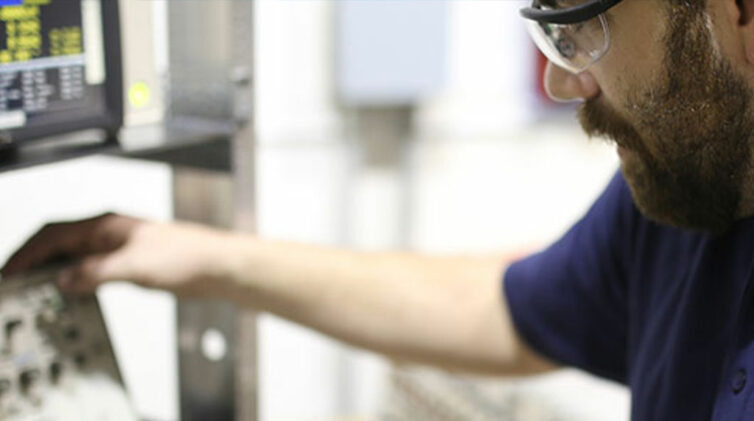“If buying a car is a commodity, there is no solution for margin compression.”
To arrive at an answer we need to define a commodity: a commodity is a basic good that is used in commerce and is interchangeable with other commodities of the same type. Iron ore, coal, wheat, orange juice, etc.
Okay. Got that. But if we want to dispute the assertion that a car is a commodity we need to establish why car buying is not a commodity purchase.
Firstly, buying a car is emotional; and it is personal.
The vast majority of car purchases are not solely utilitarian. Car buying is much more. Customers’ selection and purchase decisions are often a reflection of their lifestyle, personality, social status, enjoyment, prestige, accomplishment, and of course their stage of life.
Secondly, car buying is a very complex transaction.
There’s the complexity of selection – there are so many models, trim levels, option packages and features. As a matter of fact, many models have a 100 per cent-plus pricing premium for the top of the line versus the base equipment package.
Then there’s the technology puzzle. Today’s new vehicles have so many new technology features and enhancements, with more new technology coming every year. And of course there are also the many ownership and finance options including the vehicle price, trade-in value, interest rates, terms and mechanical protection options.
Thirdly, buying a car is an experiential transaction.
Consumers want to touch and feel the car. They want to hear stories about the model and the brand. Before they buy, they want to be wowed about a vehicle and hear about how it’s built, who else drives it and what all the features can do.
Even more important, recent studies show that 67 per cent of consumers rate the test drive as a “very important” part of the buying process.
So keeping all this in mind, it’s no wonder that the car buying process is best facilitated by a trained professional and fulfilled as a highly relational transaction. This is confirmed by consumer research in which more than 73 per cent of consumers surveyed indicated that they would travel further to do business with a great sales professional.
So the “margin struggle” for car dealers today is really the battle to de-commoditise the car buying process by delivering a high-value customer experience.
Only a high-value customer experience will allow dealers to engage their customers in a consultative dialogue and to facilitate a quality product experience, allowing them to preserve well-earned margins.
That’s why one of the key sales leadership mindsets is to ‘Be The Guide’ to the customer in a simple, transparent and easy-to-follow sales process. The old days of a ‘personality driven’ sales process where the sales consultant is a hero to ‘rescue the customer’ is dead.
Dealers need to construct their sales process around their customer’s three buying decisions.
It has been proven over decades that a customer first needs to be sold on the person they connect with. Historically that was a sales professional on the showroom floor. Today it often also includes the BDC rep or the dealer’s internet department.
Then they must be sold on the value in the new product. Only after these first two sales comes ‘selling the customer’ on the deal.
Too often, however, perhaps in the pursuit of customer satisfaction, dealers default to a customer leadership culture in their dealerships rather than a sales leadership culture.
They let the customer reverse the sales process and lead with detailed questions about the deal. Only when a dealership responds to the customer price request with the offer of a transparent and simple buying process and an assurance of a high value experience, do they then have the opportunity to deliver this experience and earn their margins.
So how does a sales team effectively lead the customer, starting with the first connection?
A big part of the solution for the dealer is the appointment culture. If the dealer has an appointment culture and 70 per cent of their showroom traffic is appointment based, then they have the opportunity to ‘prepare’ the customer’s expectations for their visit.
They can share their dealership’s brand promise about the customer’s upcoming appointment by phone, SMS or email, and they can be prepared for the customer. This preparation is key in the daily battle to deliver a high-value experience and earn healthy margins.
Absolute Results has developed a four-step selling process called the VIP Appointment Process that is designed around the customer’s three buying decisions. It is easy to follow and provides the dealer with the opportunity to build value as they guide the customer through their purchase decision. Best of all, it is proven in over 95,000 global sales transactions every year.
Absolute Results consults and deploys trainers to work in over 2000 unique dealer showrooms, in 14 countries each year. The passion and ‘why’ of Absolute Results is to develop, deliver and coach selling systems and solutions that help dealers solve some of their biggest retail challenges, and in that process to help them sell more cars today and tomorrow.
Through Absolute Results, dealers can take advantage of the COVID-19 slowdown to:
- Jump-start their dealership’s appointment culture.
- Train their sales team on the VIP Appointment Process by booking a Sales Leadership training session for their management team.
When business starts to return to normal after the shutdown, dealers can get ahead of the sales curve in the bounce-back of business by organising a world-class appointment-driven sales event with Absolute Results.
By Jeff Williams













 Read More: Related articles
Read More: Related articles

